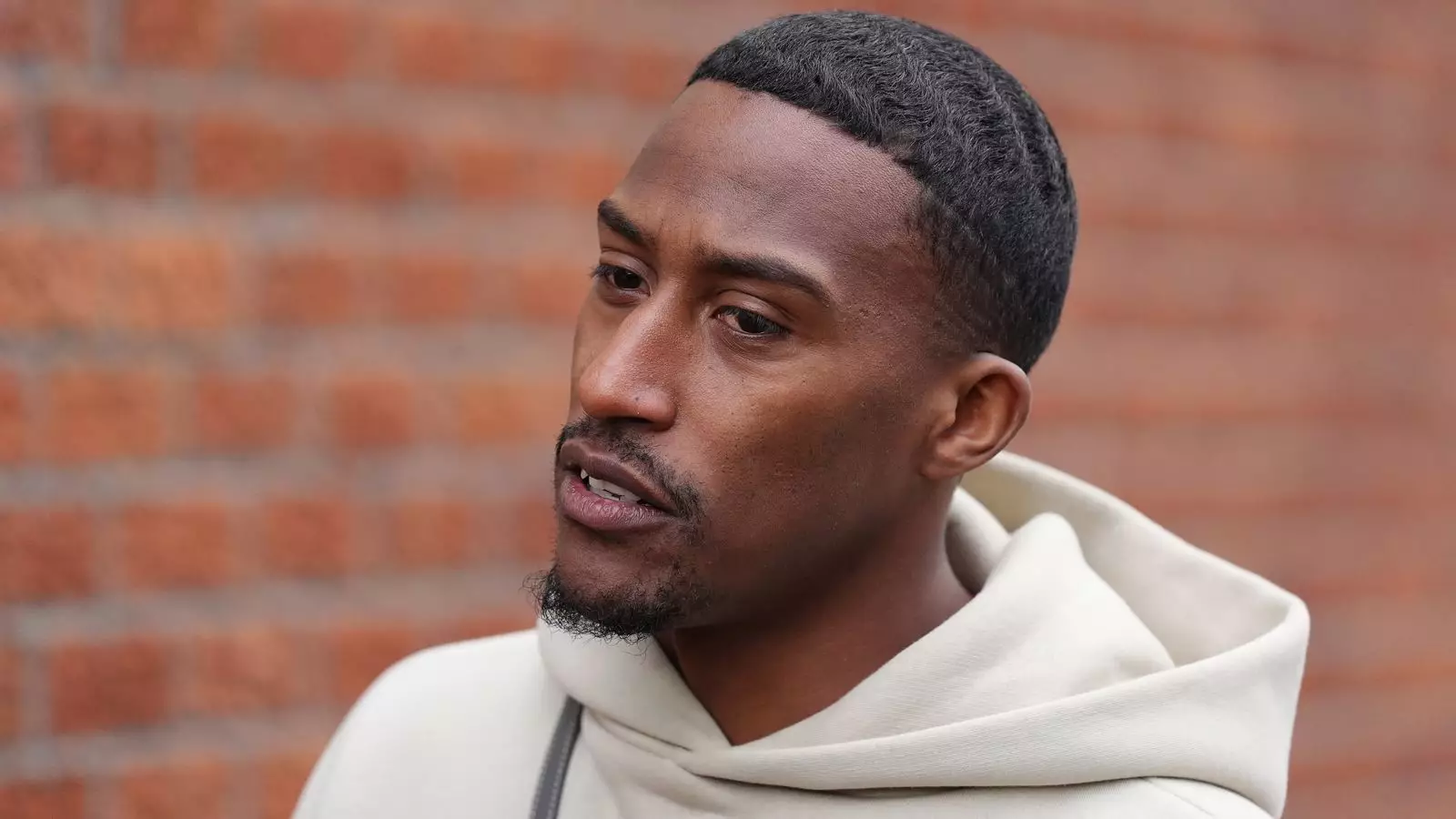The intersection of sports, celebrity influence, and social responsibility has become a contentious topic, particularly when allegations of serious misconduct arise. Recently, the Football Association (FA) made headlines for abruptly canceling an online cookery series featuring popular British YouTuber Yung Filly and several England football stars. The series was meant to promote healthy eating to adolescents, but serious legal challenges faced by Yung Filly have cast a long shadow over the initiative.
The FA’s latest campaign, titled “The Greater Game,” aimed to engage younger audiences—specifically children between the ages of 12 and 16—in the importance of healthy eating. With M&S Food as its partner, the initiative sought to capture the imagination of youths through a “Freestyle Cooking” series that would feature prominent figures from the England football team, including Bukayo Saka, Ezri Konsa, and Jarrod Bowen. The concept seemed appropriate, intertwining elements of cooking and sporting celebrity to inspire kids to explore nutritious food options.
In its promotional materials, the FA heralded Yung Filly as the perfect host. The entertainer’s social media reach—a robust presence across platforms like Instagram, TikTok, and YouTube—positioned him as a relatable figure who could resonate with the target demographic. The FA’s decision seemed grounded in a calculated understanding of the modern viewer’s habits, likely believing that Filly’s unique blend of entertainment and culinary expertise would provide a winning combination.
However, the campaign quickly unraveled as Yung Filly found himself embroiled in serious legal issues. Reports broke that he was charged with multiple counts of sexual assault following an incident in Perth, Australia. While touring for performances, Filly was accused of perpetrating an assault against a woman in her twenties. This kind of allegation cannot be brushed aside lightly, and the sheer gravity of the charges prompted an immediate reevaluation of his involvement in promotional endeavors.
Within days of announcing the series, the FA acted decisively to detach itself from Yung Filly. The governing body emphasized the necessity of maintaining ethical standards, especially when aligning itself with public figures who wield significant influence over youth. While it became apparent that M&S had no direct endorsement arrangement with Filly, the optics of a campaign rife with controversy prompted an immediate cessation of all related promotional activities.
This incident highlights a deeper societal issue concerning celebrity culture, accountability, and the ramifications of alleged wrongdoing. While public figures often serve as role models for young people, cases such as these raise questions about responsibility and the impact of their actions on their followers. In an era dominated by social media, the voices that echo the loudest can often drown out important discussions about ethical behavior and integrity.
The FA’s quick cancellation can be interpreted as an acknowledgment of this dual responsibility—one that involves promoting positive messages while also ensuring that the figures involved exemplify those ideals both on and off the field. In the wake of the allegations against Yung Filly, calls for greater scrutiny around public endorsements and partnerships may become more pronounced.
For organizations like the FA, the challenge moving forward will be to balance innovation in outreach and engagement with a strict adherence to ethical accountability. The “The Greater Game” initiative underscored the potential positive influence that sports figures can have on public health if executed responsibly. However, this incident serves as a stark reminder of the careful consideration that must go into curating campaigns that involve celebrities, particularly those who are navigating troubled waters.
As investigations unfold and the legal process takes its course, the themes of responsibility and social influence will likely dominate discussions around this case. Ultimately, in a world where influence can be wielded both positively and negatively, the cancellation of this series may serve as an impetus for all organizations to more thoroughly vet their partnerships in the future. In times of distress, it is crucial to remember that the well-being of the community, especially vulnerable youths, should always remain the top priority.


Leave a Reply